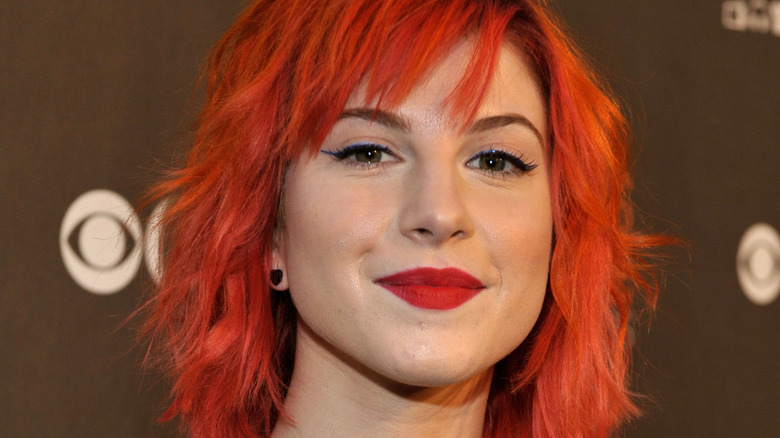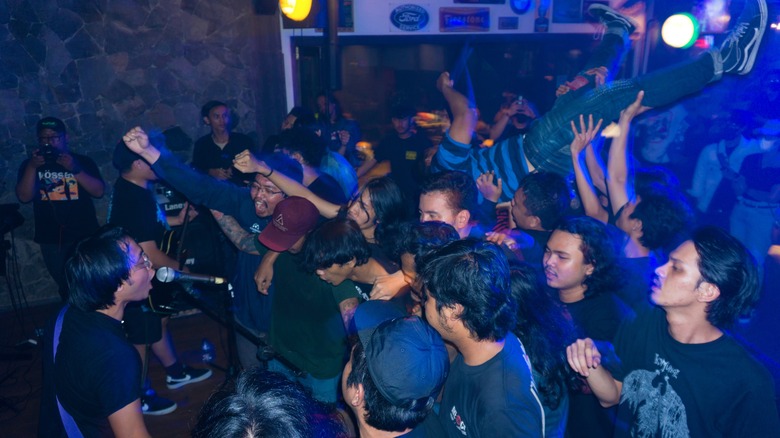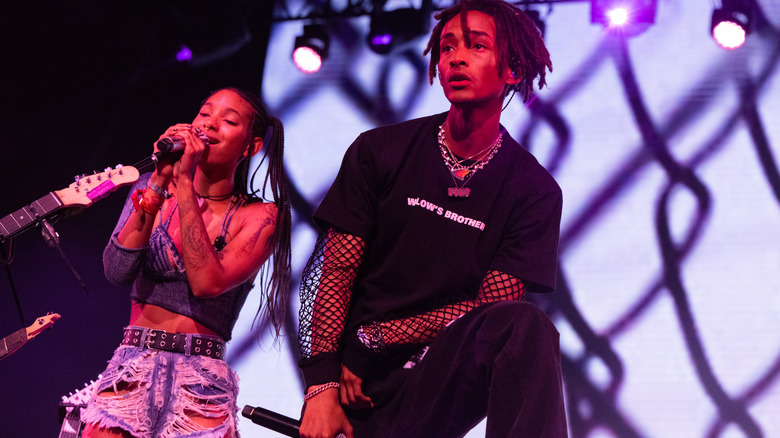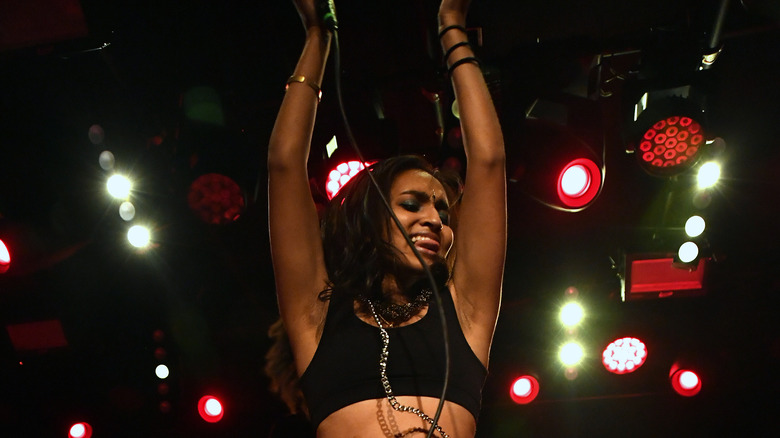Hayley Williams' Hard Look At Emo Nostalgia Reminds Us Confronting The Truth Can Be An Act Of Love
When millennials and Gen-Xers reminisce on emo culture, they likely think of many pop-punk bands that are primarily fronted by mostly male singers, like Green Day, Panic! At the Disco, and Fall Out Boy. Recent nostalgia for emo culture has musician Hayley Williams of Paramore – a standout as a popular female-led emo band – reflecting on her experience as a woman in a (once) highly male-dominated genre, questioning why people would want to revive a culture she says was rife with misogyny and racism. In an interview with New Musical Express (NME), Williams talked about how current emo nostalgia is a form of "revisionist history," or an attempt to rewrite history in a way that takes the good and leaves out the bad. "People look back with these rose-tinted glasses," she shared with the outlet. "They talk about the good and forget the rest. It was an alternative scene for a reason – it was weird."
For some fans of Williams, who has been actively in the emo scene for nearly two decades, her barbed commentary may be devastating to hear. But other fans of the genre it may be a necessary call to action: If we're going to revisit emo, we must address the bad with the good and make adjustments.
Emo music has a history of misogyny
During its height in the early 2000s, emo served as an outlet for those who felt outcasted from mainstream society. For fans, the emo genre was groundbreaking because it made expressing your feelings (especially angst and depression) normal and spurred a unique subculture that embraced finding togetherness through mutual loneliness. However, while creating a space for outcasts to emote may have been the intention, ironically, over time, the male-dominated culture became exclusionary and hostile for women.
Speaking to NME, Williams expressed frustration that many male emo songwriters took to punching down style sexist lyrics, as if they were writing from a place to misplace their anger about being outcast. "Those kids were bullied, that's why so many guys in those bands wrote s***** songs about ex-girlfriends," the singer said. Lyrics from several popular emo songs are filled with sexist imagery, and in some cases, revenge fantasies about violence towards women. Unfortunately, the issue went beyond lyrics. Jezebel highlights how over the years, multiple frontmen from emo bands have been either called out for physical and sexual harassment. "I just get angry about the injustice of a bunch of people who were bullied, essentially creating a world where other people didn't feel welcome," Williams said.
Developing an awareness of that violent misogyny is part of what led Williams herself to stop performing Paramore's hit song, "Misery Business," for years due to its sexist lyrics. Even though the band has since brought the song back into its tour lineup, Williams maintains that the lyrics are not representative of her or the band.
Emo was also not always inclusive
Along with misogyny, some elder emo fans have called out the genre's problematic history of being exclusionary toward marginalized communities.
Gal-dem details the personal experience of a woman, who describes herself as half-Jamaican, half-white-British, struggling to fit in with the Eurocentric beauty ideals that early emo culture espoused. Trying to attain the pale skin that was the ideal emo standard and finding black emo role models was essentially impossible, but her love of the culture made her try. Doing her best to stay out of the sun, trying to find emo-appropriate clothes to fit her body type, and using a hair relaxer were some of the things she would do to try to fit in with the emo culture. She found the genre to be a perfect outlet to channel her adolescent angst and creativity, as well as her desire to fit in a world that labeled her as either too black or too white. However, she didn't realize at the time that she was essentially trying to erase her true self to fit in with an ideal she couldn't possibly meet.
Thankfully, a new wave of emo bands led by people of color have come on the scene, including artists WILLOW and Magnolia Park, whose song "Don't Be Racist" is a good indication of the changing emo genre. Meanwhile, BIPOC Emo Night, an event held at various clubs in cities such as Brooklyn, L.A., Boston, and San Francisco, is creating spaces to form a totally new version of emo subculture that is truly inclusive.
How can we reckon with the past and shape emo culture into a more inclusive genre?
Nostalgia for the emo culture of the early aughts may have its place in modern music but, as Williams alludes, it is destructive to ignore the sexism and racism that was embodied by the genre. At the same time, this doesn't mean we need to put the genre to bed. Instead, calling out the past can pave the way for a more inclusive future.
Some modern emo fans and musicians are embracing diversity in their appearances and lyrics, and even events. Bands like Pinkshift have been hailed by Breakout Magazine for giving the pop-punk genre a new look. Andy Lawson, who works in the collective behind BIPOC Emo Night, spoke to The Guardian about how the genre continues to evolve. "[Emo] is not just white dudes with guitars [anymore]," he said.
This shows that the good things about emo culture, like expressing your emotions, finding community, and having a creative outlet, can carry on. Speaking before the first revival performance of Paramore's "Misery Business" in 2022, Williams assured a crowd of fans how making these changes is for the better. "What I'm trying to say – it's a word," she said. "You know, we can all learn from ourselves, right?"



